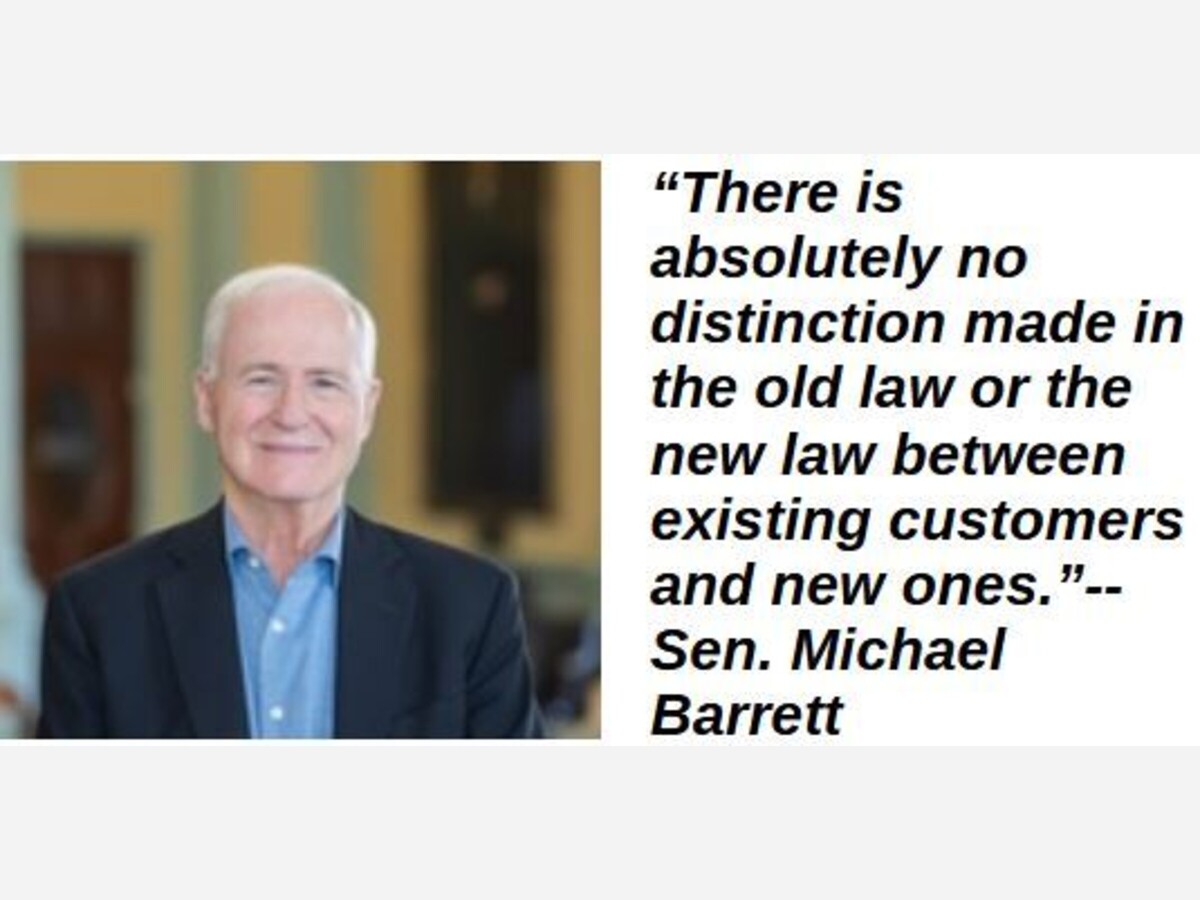by Bhaamati Borkhetaria, CommonWealth Beacon
July 10, 2025
FOR DECADES, NATURAL gas utilities in Massachusetts have been required, except in limited circumstances, to provide service to any customer within their service territory who requests it. This so-called “obligation to serve” is now at the center of a high-stakes dispute as the state works to transition away from natural gas for heating, cooking, and powering appliances as part of its climate goals.
Achieving the state’s ambitious decarbonization targets will require converting some existing gas customers to electric systems. To support this transition, a 2024 climate law changed the longstanding “obligation to serve” to allow the Department of Public Utilities to take into account the state’s emission limits and the presence of alternatives to the gas system when deciding whether to compel a utility company to deliver service to customers.
But there are clashing views on whether the change allows utility companies to force customers off the natural gas system as part of the clean energy transition, or are they only allowed to deny service to new customers requesting it.
Sen. Michael Barrett of Lexington, the chair of the Joint Committee on Telecommunications, Utilities, and Energy, says the 2024 law – which he had a hand in writing – scrapped entirely the companies’ “obligation to serve” natural gas when other alternatives are present.
“There is absolutely no distinction made in the old law or the new law between existing customers and new ones,” said Barrett. “If the Senate and then ultimately the Legislature had wanted to distinguish between old and new customers, the Senate and the Legislature would have done so.”
The utility companies take a different view. All five of the state’s investor-owned natural gas utilities – Eversource, National Grid, Unitil, Berkshire Gas Company, and Liberty – confirmed to CommonWealth Beacon that they believe that they still have an obligation to serve existing natural gas customers.
“The 2024 climate law did modify certain parameters that apply to the DPU’s consideration of whether a customer has been wrongfully deprived of service, once a customer has brought a complaint to the DPU,” said William Hinkle, a spokesperson for Eversource, in an email. “However, this would not apply to an existing customer.”
The DPU – which is responsible for making the decision on the issue – has yet to weigh in as it investigates the utility companies’ plans for climate compliance. The agency’s decision will have huge implications for the state’s effort to wean customers off fossil fuels.
The DPU declined to comment on the issue.
The agency has required the gas utility companies to submit climate compliance plans in which the companies outline how they plan to align their operations with the state’s climate goals, specifically focusing on reducing greenhouse gas emissions. Currently, the agency is evaluating those plans.
Barrett said that the utility companies have historically leaned on “obligation to serve” as an excuse to delay electrification and continue investing in the natural gas system.
“For years, the gas interest has pointed to the old ‘obligation to serve’ as a reason why they could not move toward electrification,” said Barrett. “Much as they might wish to get off fossil fuels, they would tell us, the ‘obligation to serve’ emerges as a massive impediment to their ability to do the right thing.”
According to Barrett, the Legislature overall sought to eliminate that impediment by changing the “obligation to serve” in the 2024 law.
As the state strives to meet its climate goals, environmentalists say that transitioning existing buildings off the gas system needs to happen not just house by house, but block by block. The transition, they say, needs to happen at a larger scale in order to prevent a situation where ratepayers are left paying for both the gas system and the clean energy transition.
However, if there is an “obligation to serve” existing customers and electrification of a neighborhood has holdouts who want to stay on the gas system, the natural gas system serving the block or neighborhood can’t be retired.
As part of the climate compliance process, gas utility companies have worked together on a plan to move to alternative forms of energy, like network geothermal, solar, or air-source heat pumps. In their analysis, the companies cite a lack of customer participation as one of the reasons why a larger-scale non-pipeline alternative project might be scrapped or modified.
Utility companies say they are committed to the energy transition and will evaluate non-pipeline alternatives but, with the “obligation to serve,” electrifying block by block will pose challenges if a small percentage of people aren’t willing to shift off of natural gas.
If there are neighborhoods where a gas system has to be maintained and a non-pipeline alternative is introduced, ratepayers will end up paying for both, said Caitlin Peale Sloan, vice president for Massachusetts at the Conservation Law Foundation, an environmental advocacy organization. Eventually, she said, it will be more costly for gas ratepayers because there will be fewer ratepayers to share the costs. This can potentially lead to a scenario where lower-income residents or renters – who are less able to transition to clean energy – are stuck on an increasingly more expensive gas system.
“In a hopeful, optimistic, ideal world, you could make progress on a vision of an affordable and orderly transition without changing the ‘obligation to serve,’ but it would require every customer along the way to be completely on board,” said Sloan. “That’s probably not the world we live in. There’s a lot of friction, and so we need the ‘obligation to serve’ to reflect the reality of the transition, which I believe the 2024 climate bill did, but the utilities are digging in their heels.”
This article first appeared on CommonWealth Beacon and is republished here under a Creative Commons Attribution-NoDerivatives 4.0 International License.
![]()
PARSELY = { autotrack: false, onload: function() { PARSELY.beacon.trackPageView({ url: “https://commonwealthbeacon.org/energy/in-enforcing-new-climate-law-a-di…“, urlref: window.location.href }); } }
